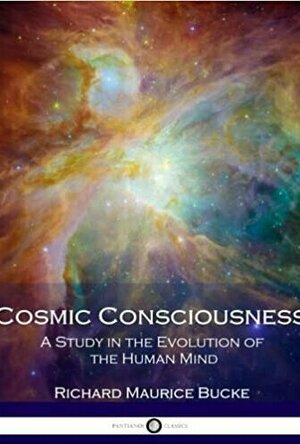Cosmic Consciousness
BookThis item doesn’t have any media yet
2017 | Education | Philosophy, Psychology & Social Sciences
Richard M. Bucke's astonishing treatise on the human mind discusses and attempts to explain mystical experiences in the context of evolutionary change in the brain.
During his mid-thirties, Bucke underwent a feeling of intense revelation and felt distinctly enlightened for a short time. Although the period of enlightenment passed, it had an immense impact upon Bucke's outlook, steering his personal and professional life in a directions he had never before envisioned. He found the experience a permanent boon to his well-being, and was able to work and enjoy life more than he formerly had.
This book is an attempt to explain the various mystical feelings of enlightenment which humans have experienced over the millennia of recorded history. Bucke's opinion is that these phenomena are becoming commoner over time, and represent an evolution of the human mind. He postulates that these experiences will become commoner as centuries go by, and become accepted as an ordinary, then eventually as a necessary or innate part of human life.
The term and title of this book, 'Cosmic Consciousness', is shorthand for the state which human beings enter during a mystical experience. A higher mental echelon free of fear or negative emotions, and characterized by greater perception and understanding of the world, Bucke stresses that Cosmic Consciousness cannot be adequately explained in spoken language. The experience in itself is indescribably different; those who attempt to couch it in words inevitably fall short, or even appear deceptive to other, skeptical individuals.
In an attempt to convince the reader that Cosmic Consciousness exists and is already instrumental to the human condition, Bucke examines a series of people he believes also underwent such a state. The figures he discusses include religious figures such as Mohammed and St. John of the Cross, philosophers such as Socrates and Leo Tze, scientists such as Francis Bacon, and authors such as Benedict Spinoza, Walt Whitman and William Blake.
This early text of psychology sees Bucke speak freely about the mystical and spiritual aspects of the human mind. At the time, the discipline was in its infancy, and philosophical discussions of unusual, spiritual experiences were a welcome addition. Although many of Bucke's views have been disproved or refuted by testing and research, Cosmic Consciousness continues to be considered a classic for its incisive, frank discussions of unusual experiences. It is today considered a good companion text to the masterwork of William James; The Varieties of Religious Experience.
Related Items:
| Published by | Createspace Independent Publishing Platform |
Images And Data Courtesy Of: Createspace Independent Publishing Platform.
This content (including text, images, videos and other media) is published and used in accordance
with Fair Use.
